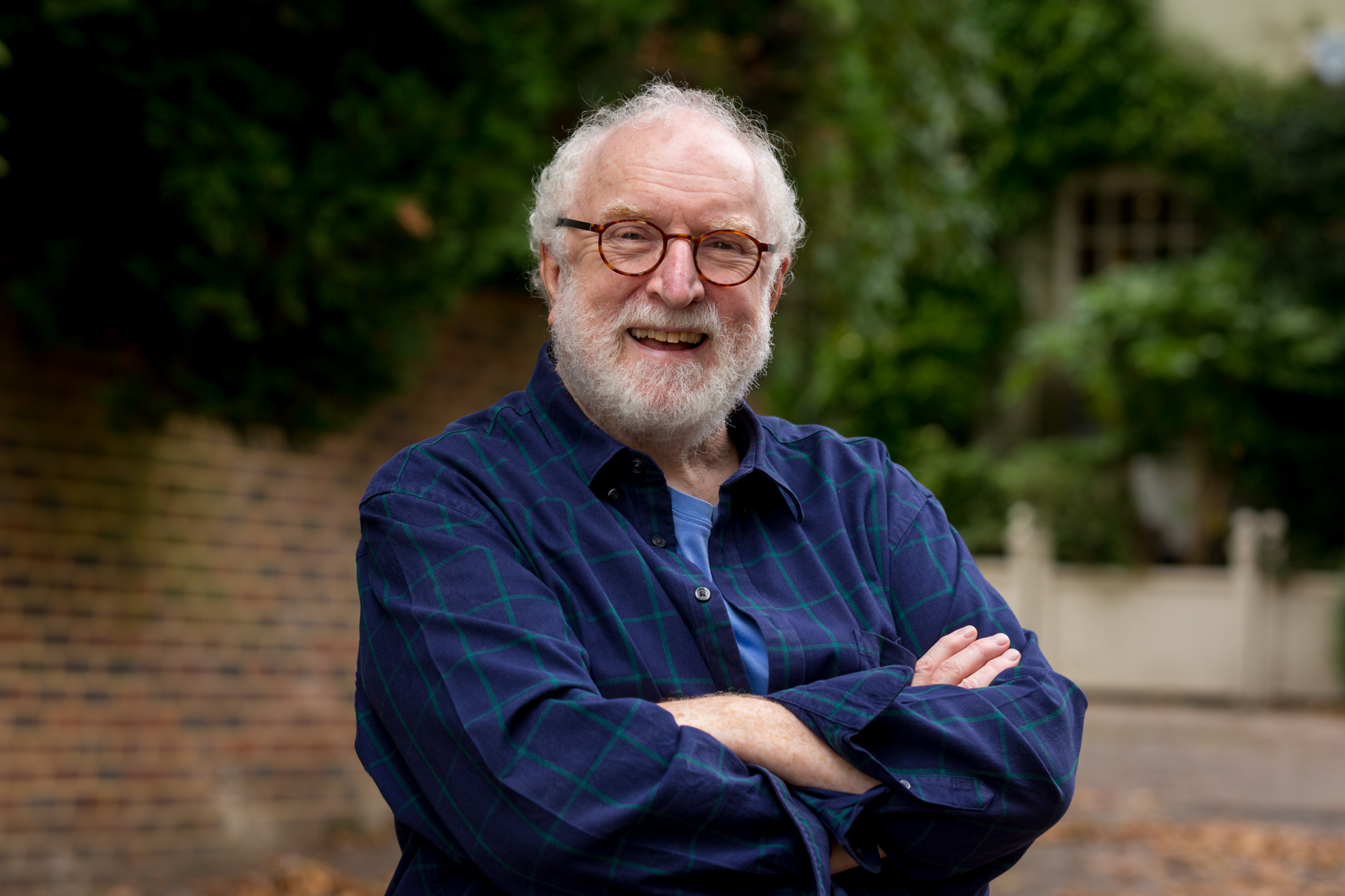In our winter 2021 edition of In The Square, I featured an interview with the charismatic musician Mo Foster who lived most of his life in Belsize Village. On 3 July this year Mo passed. I went to visit him in hospital a week before he died and all he wanted to talk about was how he grateful he felt to have so many friends. Since first meeting Mo I had the pleasure and luck to sit with him in Belsize Village cafes, listening to his funny anecdotes and learning from him that what it is important in life is to be true yourself, even if that means going against traditional norms. To remember Mo, in this month’s NewLetter I am republishing the interview with him that was written by Spencer Bright.
When Music Is The Soundtrack To Your Life
Although he’s played with many musical legends – Phil Collins, Joan Armatrading, Gerry Rafferty, Jeff Beck, Cliff Richard, Brian May, Gil Evans and Sting, to name but a few – Mo Foster is, as befits a studio session player and band sideman, modest and reluctant to blow his own trumpet. Though in his case it’s an electric bass. According to a jazz critic reviewing his latest album Mo Foster & Friends In Concert, Mo is one of the world’s premier bass players. To date he has released several albums under his own name, founded the first-ever bass guitar teaching course at the University of London, authored a witty book on the history of British rock guitar, and now at the age of seventy-six, continues to play live, compose production music and to be a popular raconteur.
Mo’s adult life began with him studying physics at university and afterwards for a while he worked in a research lab. He says in his soft-spoken and calm manner, “music was calling me…I tried to ignore it and do what I thought I should be doing to earn a living but when you have the desire to make music you can’t ignore it. I knew that I didn’t want to be a pop artist, that didn’t feel like me, but you could say that music itself was telling me what to do.”
Mo’s first professional success came when he was part of the jazz rock band Affinity managed by the late Ronnie Scott. When the band dissolved Mo advertised his services in the music paper Melody Maker and he got a job recording with ex-Manfred Mann singer Mike D’Abo’s band which led to his first tour in America. Things were looking up and not long after, in 1971, Mo was offered his first gig as a session musician. So began a successful decades-long career that at times could see him playing three lucrative sessions a day. The role of the session musician fitted well with Mo’s personality. He explains, “As a session musician you work to give to a song what it needs. It’s a selfless role because ultimately you have to do what the artist or producer wants.”
In 1978, on the lookout for a permanent home, Mo settled in Belsize Village. “I wanted a place that looked good on the inside and when I opened the front door the streets looked good on the outside too. It was a pretty area, quite bohemian, with journalists and cartoonists frequenting The Belsize Tavern. The area also had a musical history. Below Chateaubriand the terrific French restaurant that used to be in the village square there was a folk club, The Witch’s Cauldron, where Paul Simon once played.” Ten years later Mo named his first solo album Bel Assis in honour of the neighbourhood. The words translate as ‘beautifully situated’ and it is the origin of the name Belsize. The village was indeed an ideal location for Mo’s session work in London’s recording studios, many of which were in Soho.
The wonderful thing about Mo is that he has so many memorable and funny anecdotes about his career in the music industry. He recalls how he had been working at Ringo Starr’s Ascot home when he decided to go for a walk in the grounds and saw Ringo’s Alsatian coming towards him and not stopping despite desperate calls from Ringo’s wife Barbara Bach. “I thought the dog was coming for a stroke until I saw its teeth bared. He actually bit me on the bum and I had to go to hospital for a tetanus shot.”
Growing up Mo was a fan of Jet Harris, bass player with The Shadows, whose surviving members he is now proud to call mates having worked extensively with them. The Shadows were the first true British rock and roll band and Mo remembers just how flustered he was the first time that he shook the hand of the group’s lead guitarist Hank Marvin who ended up writing the foreword in Mo’s semi-autobiographical book Seventeen Watts?
Over the years Mo Foster has fronted various iterations of his own bands. The current one, an ad hoc arrangement of great jazz musicians he has known on the London scene for many years, came about almost by chance when Linda Hoyle, vocalist with his original band Affinity, couldn’t make a gig that he had planned at the Pizza Jazz Club in Soho. Rather than cancel he called on his mates, and with that came about his latest album. Mo Foster & Friends is out now on Right Track Records.
Cover Photo: Mo Foster photographed by Graham Turner





